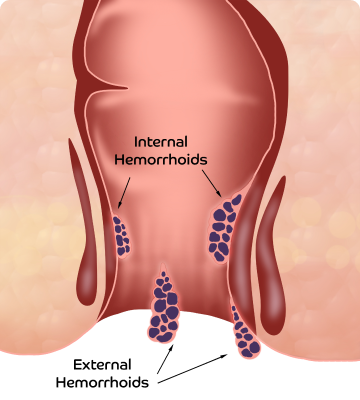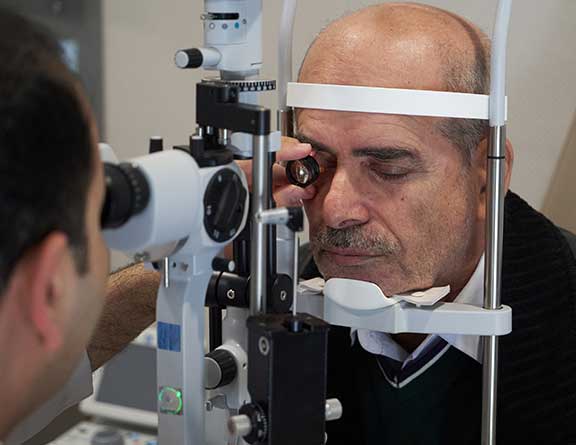Undergo the best and safest cataract surgery in Tumkur from expert ophthalmologists
You can find some of the expert eye doctors in Tumkur at Pristyn Care. At Pristyn Care, all our experienced eye doctors are well educated and trained in performing cataract surgery with no or minimal risks and complications. Our doctors use modern medical technology during the surgery and minimize the risk of infection.
Our ophthalmologists follow world-class medical guidelines and provide the best and safest healthcare services to all patients at an affordable cost. Regardless of age and gender, any patient can get consulted by our eye doctors and can undergo cataract surgery. If you wish to visit Pristyn Care, book an appointment to avoid the waiting period.
What are the different types of Cataract Surgery?
All types of cataract surgery involve the replacement of the natural lens with an artificial implant, which is known as an intraocular lens (IOL). In Tumkur and every other city across India, the following techniques are available to perform cataract operations:
- Phacoemulsification Cataract Surgery: It is one of the most common techniques used for cataract treatment. During phacoemulsification, the surgeon makes an incision around 2 to 3 mm with the help of an ultrasonic probe. The probe breaks up the cataract using vibration and removes the fragments with a suction device. Then a foldable lens is inserted into the eye through the incision.
- Manual Extracapsular Cataract Surgery: (MECS) MECS is a technique that involves making a large incision, around 9 to 13mm long to remove the clouded eye lens and replace it with the IOL.
- Manual Small Incision Cataract Surgery (MSICS): It is a variation of MECS in which a smaller V-shaped incision is made in the eye. The incision becomes wider as it reaches the lens. While the outer incision is around 6.5 mm, the inner incision is around 11 mm.
- Micro Incision Cataract Surgery (MICS:) As the name suggests, micro-incision cataract surgery is done through a 1.8 mm incision which is even smaller than small incision cataract surgery (MSICS). The rest of the procedure stays the same. The clouded lens is removed and replaced with an artificial lens.
- Femtosecond Laser-assisted Cataract Surgery (FLACS): It is the latest technique to perform cataract surgery. A femtosecond laser is used to make the incision and the laser further divides and softens the cataract. Due to this, a minimal amount of phacoemulsification energy is required to remove the clouded lens.
- Intracapsular Cataract Surgery: This type of cataract surgery involves the removal of the entire lens and the lens capsule from the eye. It requires a big incision and has many risks and complications. Therefore, it is rarely performed nowadays.
Out of all these types of cataract surgery, each has its own set of advantages and disadvantages. Not to mention that each technique has some side effects and chances of complications. Therefore, when you consult a cataract doctor, he/she diagnoses the condition thoroughly and then suggests the appropriate technique which is safe for the patient.
How to choose the best cataract lens for you?
The best thing about cataract surgery is that once the lens is replaced, the results are permanent. And there are different types of lenses for cataract surgery, each of which has unique benefits. These lenses are widely known as intraocular lenses and are classified into the following types:
- Standard Lens (Monofocal): This type of lens addresses the vision problems at a specific distance, i.e., either nearby vision or distant vision. You can choose between the two depending on the activities you perform on a regular basis. Monofocal lenses are usually spherical, i.e., the surface is uniformly curved, allowing the patient to see clearly at one distance only.
- Multifocal IOLs: These lenses can help the patient to see distant and nearby objects clearly at the same time. These are considered premium lenses because they have both multifocal and accommodative properties that allow the patient to see at different ranges at the same time. Multifocal lenses are aspherical, therefore, they can correct presbyopia and astigmatism at the same time.
- Toric Lens (IOLs): This type of lens is specially made to correct astigmatism in cataract patients. There is a special type of toric lens as well that provides extended depth-of-focus. These lenses are slightly more expensive than other types as well.
- Monovision Lens: People often confuse monovision lenses with monofocal lenses. There is a significant difference between these two. While a monofocal lens provides clear vision at a distance only, a monovision lens is implanted in both eyes to correct vision problems. An intraocular lens is implanted in one eye that provides nearby vision and another lens is implanted in the other eye that provides distance vision.
The doctor does an accurate diagnosis to determine the appropriate power of the IOL and provide desired results to the patient in terms of refractive outcomes after the surgery. You will have a detailed discussion with the doctor about these types of lenses for cataract surgery before proceeding with the treatment. The specialist will also provide you information about the best cataract lens brands in India, such as Bausch & Lomb, Freshlook, Acuvue, Alcon, Johnson & Johnson, Zeiss, etc. to make the decision.
Don’ts After Cataract Surgery
- Do not rub your eyes with your hands as it can dislodge the corneal flap and stitches.
- Don’t take a shower bath or swim for the first 10 days after surgery.
- Avoid washing your eyes until the doctor gives you permission to do so.
- Avoid using shampoos or cosmetic products too as they may contain chemicals that can irritate the eyes.
- Do not indulge in activities that may damage your eyes, including contact sports or activities like swimming.
- Avoid lifting heavy weights as it may put a strain on your eyes.
- Also avoid coughing, sneezing, or straining during bowel movements as it may increase the pressure on the eyes.
Do’s After Cataract Surgery
- You can watch TV or other digital screens after the 3rd day of cataract surgery.
- Do remember to use the eye drops prescribed by the doctor as directed.
- Wear a protective eye cap throughout the day and at night to prevent dust or dirt from entering your eyes.
- Keep the protective cap on while you are asleep to ensure that you don’t rub or poke the eye during sleep.
- Clean your eyes with clean and warm water with the help of cotton.
- Contact your doctor if any of the problematic symptoms, like itchiness, fluid discharge, etc. persists longer.









.svg)









